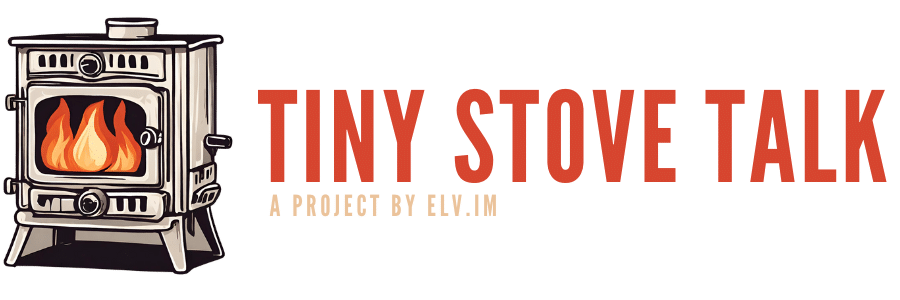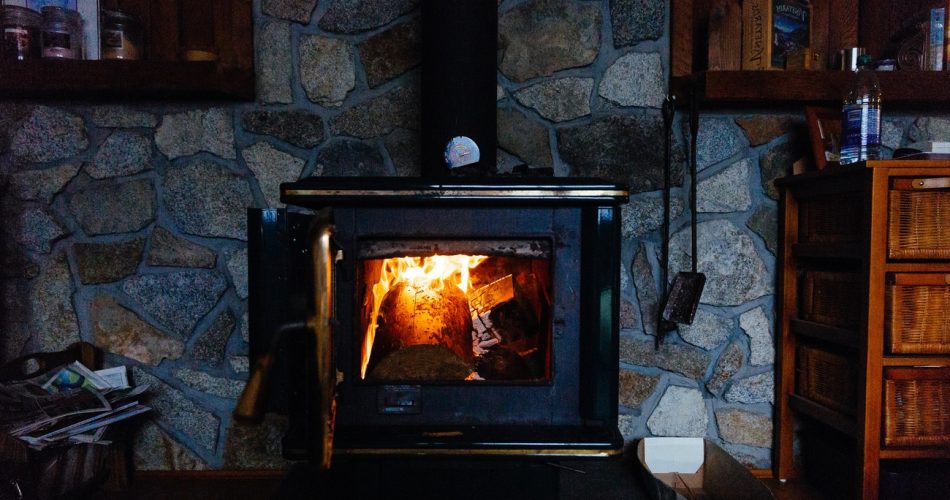As the UK braces for an early taste of winter, an “Icelandic blast” is set to bring plummeting temperatures, hail, and even snow to parts of the country. While many are preparing to fire up their log burners for warmth, new regulations mean that unwary homeowners could face fines of up to £300—or even more—for non-compliance with updated wood-burning laws.
A Cold Front Meets Hot Regulations
The Met Office issued an alert on September 9, warning of a cold front moving in from Iceland. Weather experts predict a significant dip in temperatures, with chilly air masses bringing hail and potential snowfall to certain regions. This sudden onset of cold weather means that over 1.5 million Brits who rely on wood-burning stoves will be igniting their fires sooner than expected.
However, recent changes in legislation have introduced strict rules on the type of log burners you can use and the fuels you can burn. Failure to adhere to these regulations could result in immediate fines from local councils, ranging from £175 to £300, and repeat offenders could face criminal charges with penalties up to £1,000.
Understanding the New Log Burner Laws
EcoDesign Standards for New Stoves
- Effective from January 2022, all newly manufactured wood-burning stoves must meet the EcoDesign Ready criteria. This European standard ensures that stoves are designed to reduce emissions and improve air quality.
- Existing stove owners are not required to replace their appliances but must comply with fuel regulations.
Approved Fuels Only
- Ban on Wet Wood and Traditional Coal: As of May 2021, the sale of traditional house coal and wet wood in small volumes is prohibited. Wet wood (with a moisture content above 20%) produces more smoke and harmful pollutants.
- “Ready to Burn” Fuels: Homeowners must use approved fuels labeled as “Ready to Burn,” indicating they have a moisture content of 20% or less. This includes kiln-dried logs and certain types of smokeless coal like anthracite.
- Moisture Content Matters: Burning wood with higher moisture content not only produces more smoke but is also less efficient, providing less heat and causing creosote buildup in chimneys.
Smoke Control Areas
- Many urban and suburban areas in the UK are designated as Smoke Control Areas. In these zones, only DEFRA (Department for Environment, Food & Rural Affairs)-approved stoves and fuels can be used.
- Burning unauthorized fuels or using non-exempt appliances in these areas can result in fines up to £1,000.
Health and Environmental Implications
The government’s crackdown on wood-burning stoves is part of a broader initiative to combat air pollution. Domestic wood burning is the single largest source of particulate matter (PM2.5) emissions in the UK, contributing to 38% of total emissions, according to DEFRA.
- Health Risks: PM2.5 particles can penetrate deep into the lungs and bloodstream, leading to respiratory and cardiovascular diseases, including asthma and Chronic Obstructive Pulmonary Disease (COPD).
- Environmental Impact: Reducing emissions from wood burners is crucial for meeting the UK’s targets under the Clean Air Strategy and commitments to reduce air pollution in line with World Health Organization guidelines.
What Homeowners Need to Do
- Check Your Stove: If purchasing a new stove, ensure it meets the EcoDesign Ready standards. Look for certification labels and verify with the retailer.
- Use Approved Fuels: Always buy wood and solid fuels that display the “Ready to Burn” logo. This ensures the fuel meets the required moisture content standards.
- Consult Local Regulations: Determine if you live in a Smoke Control Area by checking with your local council or using online maps provided by DEFRA.
- Maintain Your Appliance: Regularly service your stove and chimney to ensure efficient operation and reduced emissions.
- Avoid Illegal Fuels: Do not burn waste materials, treated wood, or unauthorized fuels, as these can release toxic pollutants and are illegal to burn in domestic stoves.
Penalties for Non-Compliance
- On-the-Spot Fines: Local authorities can issue immediate fines ranging from £175 to £300 for violations.
- Criminal Proceedings: Persistent offenders may face court action with fines up to £1,000.
- Chimney Smoke: If your chimney emits excessive smoke, you could be penalized even if you’re using an approved stove and fuel.
Why These Changes Matter
The government’s initiative is a response to growing concerns about air quality and public health. By tightening regulations on wood-burning stoves and fuels, the aim is to:
- Reduce Harmful Emissions: Lower the amount of PM2.5 and other pollutants released into the atmosphere.
- Improve Public Health: Decrease the incidence of pollution-related health issues, potentially saving thousands of lives annually.
- Meet Environmental Targets: Align with national and international commitments to reduce air pollution and combat climate change.
Additional Information and Resources
- DEFRA’s Official Guidance: Visit the UK Government’s website for detailed information on approved appliances and fuels.
- Local Council Support: Contact your local environmental health department for advice specific to your area.
- Approved Fuel Suppliers: Use suppliers certified by HETAS or Woodsure to ensure you’re purchasing compliant fuels.
Looking Ahead
As winter approaches and temperatures drop, it’s essential to stay warm safely and legally. The new regulations not only aim to protect the environment but also to safeguard public health. By understanding and adhering to these laws, homeowners can enjoy the comfort of their log burners without risking hefty fines.
Stay informed, stay warm, and keep the air clean for everyone.




Comments